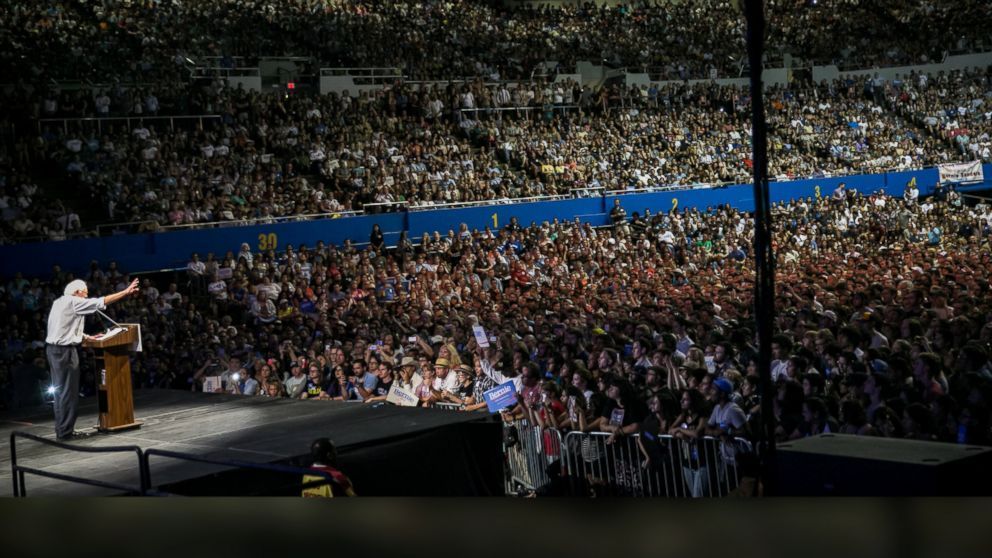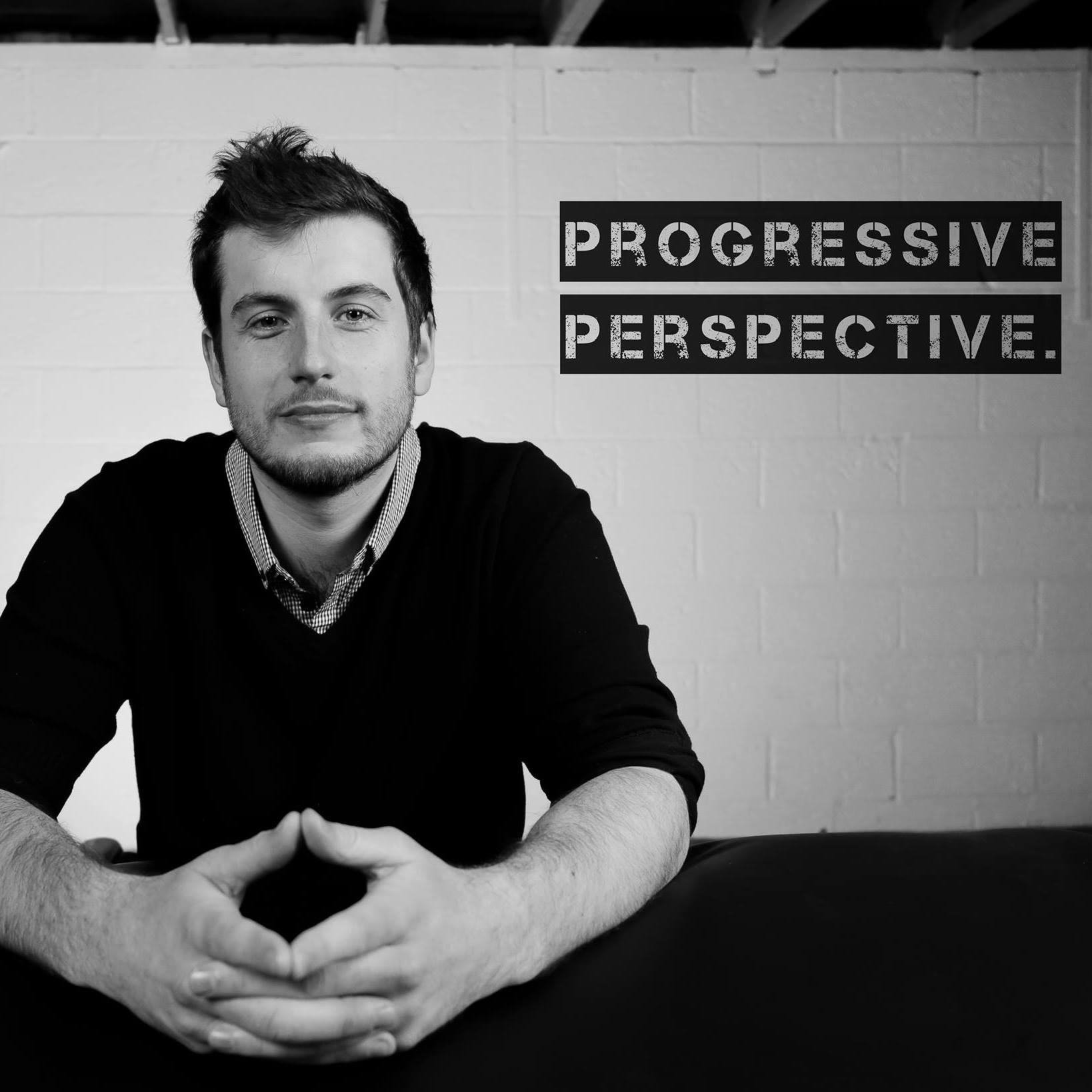Larry Sanders on Bernie 2020, the NHS, Brexit, and more: The Interview - Part 3
"I think that in order for the sort of Bernie Effect to be as significant as it was in 2016, today, I think he needs to be bolder, more radical." Larry Sanders and I talk about the state of grassroots movements in the US and the UK.

Recently I sat down with Larry Sanders, brother of Bernie Sanders, veteran social care worker and academic on the subject, and long-time progressive and Green Party member. In part two of our talk, we talked about the NHS and social care, and the crisis facing our healthcare system in the UK.
A friend of mine whom I worked with on two of his campaigns, I was keen to hear his opinion on several key issues.
In part three, we talk about the state of the grassroots movements here in the UK, and in America - a critical component of bringing about meaningful change in today's society.
Once more, my comments are tabbed for clarity.
- Our previous piece focussed and finished on the crisis the healthcare system in the UK is funding from austerity underfunding, and privatisation. Check part two of my conversation with Larry for that analysis.
Our conversation continues from there.
Grassroots Movements in the UK
P: I think that in order to really make a difference on [healthcare], we’re going to need similar to what has been happening in America. You know, we can’t just - the entire point is that the power structures as they are are broken, and so in order to fix them we’re going to need external power coming from the people, to push the system towards the kinda change that we need.
What would your advice therefore be to the sort of the people in this country who see these problems happen, and are hungry for change?
L: I find it very hard to know what to say to that. The ascension of Corbyn of the Labour leadership is very good, very important, but of course we know that the bulk of the Labour members of parliament were anti-Corbyn. Aout ¾ of the current membership voted no confidence in him. I don’t think that was particularly personal, I think it was just that their political viewpoints are different.
And I see things that are obviously from the outside. It took four years - Caroline Lucas, Green Party MP, put forward the strongest effort in Parliament to end the privatisation of the NHS.
About four years ago, Corbyn and five other Labour MPs signed up to it - 200 hundred odd didn’t sign up to it. Over the years, the numbers crept up, I think 30, 40, I don’t think it ever made 50. Then even after Corbyn was the leader, it took two years. And it looks now, among people whose opinion I respect, think that the decision really has been made in the Labour Party, that they would do away with privatisation in the NHS.
Having seen that something so obvious - I mean, how can you be in any part of the Labour Party, left, right, whatever, and not know that the basis of the NHS is that it’s not privatised.
P: Absolutely.
L: And if it took 3 or 4 years, and obviously an awful lot of work and fighting behind the scenes, which I certainly didn’t know anything about, well it’s hard to be too optimistic.
On the other hand, there are many very good things that people in considerable power like Corbyn and McDonnell are in favour of. Whether they caught the economic understanding to really fight it out is really another question. So, I’m not quite sure.
[Laughter] I probably missed the question along the way. Uh, whether I’m optimistic. I think there are chances - partly because of Corbyn’s position, partly because there is a growing understanding of inequality, which I think has been very hard to get across, but is beginning to creep across into the medium and so on, that we might have that kind of grassroots movement that would make it possible to change the country.
American Grassroots
P: Absolutely. That’s what I’m hoping for, that’s what I’m looking forward to see. I mean, one of the other things I wanted to ask is something that I think your brother was great at was starting a political movement and really engineering to be self-sustaining.
I think that that’s particularly interesting for this coming election, because I think, and it’s wonderful that it’s happened and I’m sure Bernie would agree, I think the base, particularly the youthful base in America, I think they’ve really - they’ve lived up to that mantle. They’ve taken on board that model, so much so that I think that the bar of what is, what the people demand, not just in terms of policy, but also in terms of tactics against the establishment is set even higher. And I think that the standard for progressivism is set even higher than before.
I think that in order for the sort of Bernie Effect to be as significant as it was in 2016, today, I think he needs to be bolder, more radical. I think 2020 Bernie needs to be as radical for today as 2016 Bernie was for then.
But I mention all of that because I wanted to ask your opinion on Corbyn, not in terms of policy, but in terms of building such a movement? My particular thoughts is that that hasn’t happened so much here.
I’ll give you an example: let’s say Corbyn decided to retire today, and we had to elect the next left leader, I think people would have a general sense certainly of what to look for in a candidate: we’d need someone who fights for people, who is against the corrupt powers that be and so forth. And they could generally name some areas policy wise that they want them to work on.
But specifically, if you ask a young progressive person in this country, a Corbyn fan, they probably wouldn’t be thinking “Oh, Corbyn’s stepping down? I’m looking for who’s going to strengthen the NHS, who’s going to fight Climate Change as a policy?” do you see what I’m saying?
But in America now, because of Bernie’s last campaign, the way that the movement is set up now - a clear list of policies is at the top of a progressive’s mind when choosing a leader to back. Which is great to see. So I want to ask, what do you think in terms of Corbyn and other people, how should they do to strengthen the movement?
L: Again I’m not sure I have good answers. I think you’re right. I don’t think - Momentum is obviously quite a powerful factor in the Labour Party, and as far as I can see largely a good factor. They’ve been trapped with this horrible Brexit business that we’ve had. Two and a half years, where politics in a sense has been in abeyance. This enormous black cloud that’s been dominating everything.
And it’s hard to blame anybody on the left for that. I think I understand how Corbyn is trying to play it. I think he’s probably wrong.
P: How so?
L: Well, where I think he’s trapped in that there is a large part of what should be a working class Labour vote that would be very antagonised, angry about a non-Brexit.
P: You mean no deal Brexit, or?
L: No, no, any kind of non-Brexit. Cancelling Brexit.
And I think that that’s Corbyn’s fear. That if he is seen to be against Brexit, that the next - that from then on, for a very long time, there would be, I don’t know hundreds of thousands if not more people, who would normally vote Labour, who would not. And that they might for a kind of a revived UKIP or whatever. Or Conservatives. If it turns into a ‘Conservatives are for Brexit, Labour was against’ it does make the politics difficult. And I think that that’s one of the things that he’s been concerned about.
The other thing is that the EU is not a marvelous institution. It has a lot of factors, a lot of policies which are destructive. Which doesn’t mean - it does seem though that it would be much more destructive to come out. It would have been better if they had different policies, it doesn’t mean coming out would be better for this country it looks to me. At least for people that I respect, it would be very damaging. So, Corbyn has found himself in a very difficult position, and I think he’s tried to fudge it, which is alright.
Politicians are entitled to try and fudge difficult situations. But I’m not sure it’s worked. And I think if, if we end up with the next election being between two Brexit parties - what does that mean. I don’t know, but it won’t be good.
So, I’ll leave that in mid air.
P: I concur. I think there’d certainly be a frustrated public.
Check out our next article, where I discuss with Larry Brexit, in part four.
